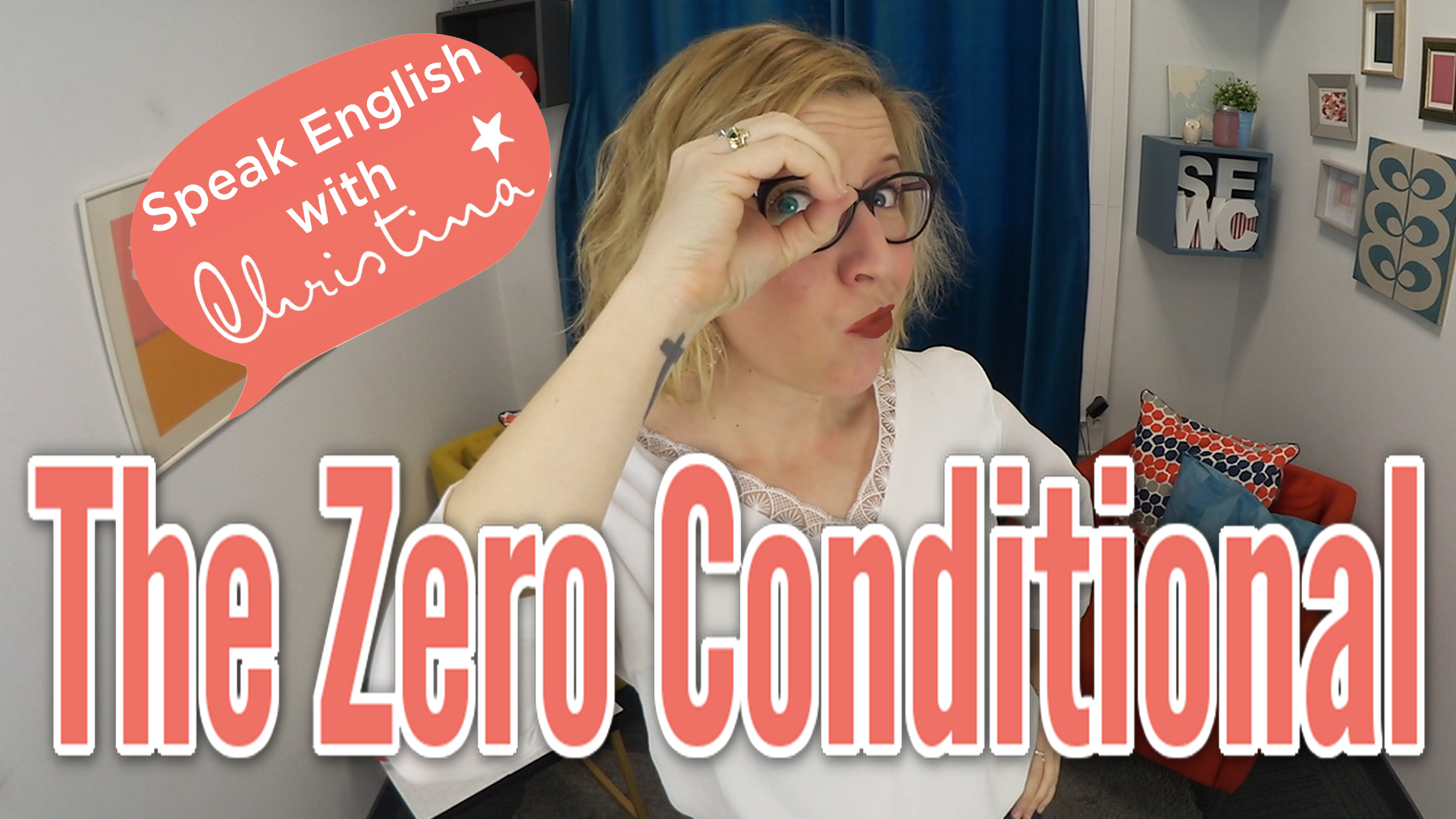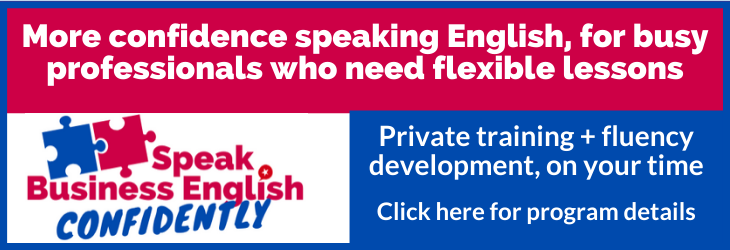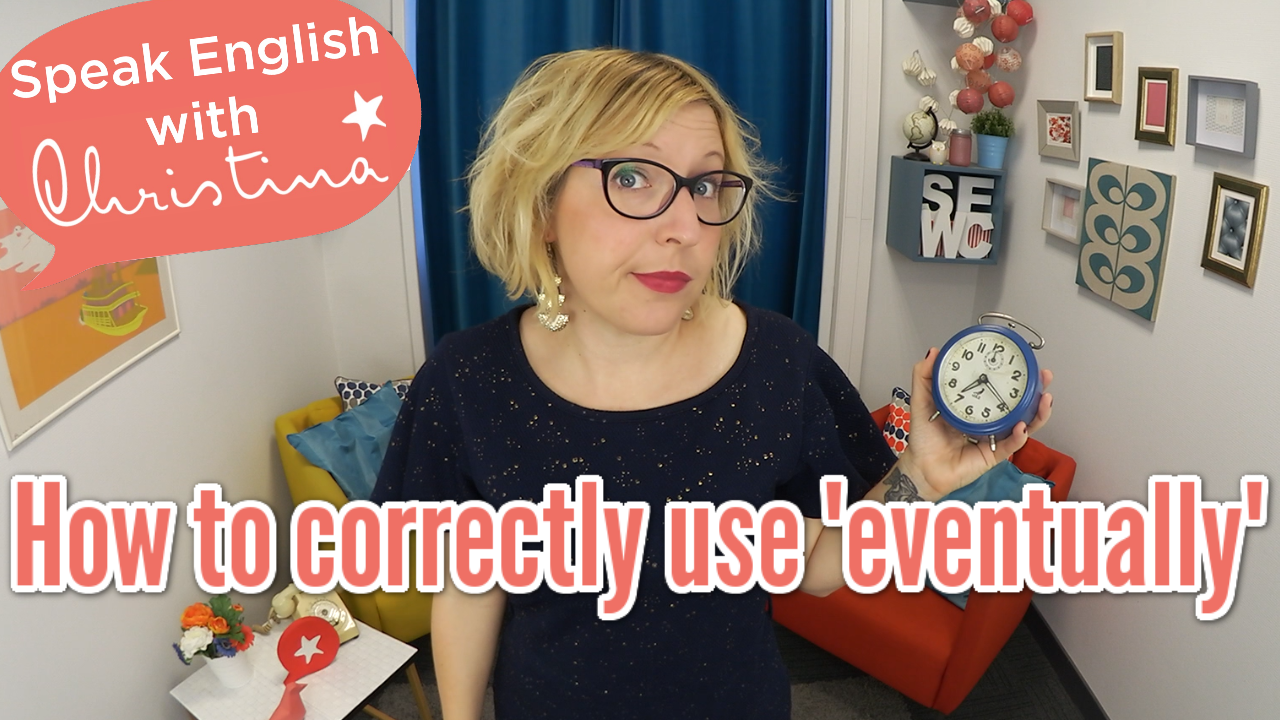
Hi there! I’m your English coach Christina, welcome to Speak English with Christina, where you’ll learn American culture and business know-how to become confident in English.
Conditionals in English can be more complex than you think! There’s the zero conditional, 1st, 2nd, 3rd conditionals, mixed conditionals… If you know these, you’re a superstar in English! See what I did there? That’s the zero conditional, it’s the easiest one, and it’s the focus of our episode today!
So what exactly is the zero conditional, how does it work, and how can you use it? Well, let’s go!
Index:
- Zero conditional: “if” + [present tense], [present tense]
- Zero conditional: for logical consequences
- How to use the zero conditional (with examples)
- Bonus: the difference with the first and second conditionals
1. Zero conditional: if [present], [present]
Grammatically speaking, the zero conditional is the most simple of all.
It works like this:
→ If + [a sentence with a verb in the present], then + [a verb in the present].
Or in other words:
“If you add 2 plus 2, then you get 4.”
“If you rearrange the letters in DEBIT CARD , then you get BAD CREDIT.”
“If there are too many choices on a survey, then customers are confused.”
You can also take out the “then”. For example:
“If the tea gets too hot, it burns your mouth.”
“If you buy three pizzas, you get the fourth one for free.”
“If a plant is placed under sunlight, it grows higher eventually”
By the way, here’s how to use “Eventually” in English.
2. Why use the zero conditional? For logical consequences.
So, how does the zero conditional work? What is it for?
Well, this English tense is used for logical consequences. When the consequences always follow the cause – by law, by nature, or by definition. There’s no “maybe,” no hope and no fear, there. It’s just the way it is!
That’s also why the zero conditional deals with generalities, and not specific situations.
If an animal has two legs and no feather, then it’s a human – according to Plato.
If a rectangle has the same length in its four sides, it’s a square.
When someone uses “you” with the zero conditional, it’s mostly as a general “you” as a human being – not to address you as an individual person. You could replace it with “somebody”, “anyone”, “people”…
If you speak another language, you can talk to more people.
If somebody speaks another language, they can talk to more people.
If you park in the wrong place, the police gives you a ticket.
If anyone parks in the wrong place, the police gives them a ticket.
If you shout while fishing, the fish get scared off.
If people shout while fishing, the fish get scared off.
If you use SMART goals, you get more focused new-year resolutions.
If people use SMART goals, they get more focused new-year resolutions
SMART goals are a great tool to learn English as well!
3. How can you use the zero conditional? Examples!
So how can you use the zero conditional? In which situations should you use it, in your conversation?
In everyday life, you can use the zero conditional to give details, truths and definitions:
If a bird quacks like a duck and swims like a duck, it’s a duck.
If a stars get old and bright enough, it becomes a supernova.
“If people send us an email, we answer it in five minutes. That’s how dedicated we are!”
You can also use it to explain a rule:
If someone calls, then you take their number and tell them I’m busy.
If a student answers this question correctly, they get 5 points.
If a sentence is in the zero conditional, it’s made of “if” and two parts in the present.
(By the way, did you notice? “They” can be a singular pronoun in English!)
You can also use the zero conditional as a warning. Since it’s only used for facts and rules, the warning feels less personal and more objective.
“Oh by the way! If you close the door, it locks automatically. Just so you know!”
“If too many people log in at the same time, the system crashes. We should try and repair that.”
Colloquially, you can also use the zero conditional with opinions or your own decisions. But the zero conditional will make them sound much more abrupt and definitive – like a rule. It’s an effect you might use.
“Well yeah, you know my rules: if you’re not on call 24/7, you get fired.”
“If you don’t respect my work, I quit!”
Don’t get too aggressive though, or it might backfire someday.
And now you’re done!
4. Bonus : differences with the first and second conditional
The first conditional in English deals with specific situations – and what might happen out of them. While the zero conditional is about generalities, rules and definitions, the first conditional is about probabilities.
For example, in the zero conditional, we could have:
You find success if you work hard. = In general, hard work always creates success.
While in the first conditional, it would make:
You’ll find success, if you work hard = In your situation, I believe that you’ll probably get success after you work hard. But I wouldn’t necessarily say the same thing to somebody else.
On the other hand, the second conditional is about something that I don’t think will happen. It uses the simple past, and the subjunctive with “would”:
If you worked hard, you would find success. = You could do well, but I don’t think you’re going to work hard and find success.
So remember. For the zero conditional:
– If + present tense, then + present tense
– Then can be dropped
– It’s for generalities, definitions and logical consequences that always happen
– You can also use it for impersonal warnings in your everyday life
– Try not to use it for opinions or things that could be different!
Now, tell me…
Can you make a sentence with the zero conditional?
Start typing in the comments below: “If….” You’ll make sure you really understand how it works. It’s a great way to practice your English!
And if you would like to become more fluent, more confident, and work with one of my Expert Teachers, check out my new program Speak English Confidently. It combines private training sessions with regular conversation practice, so you speak more correct English, more fluidly. Click here to get started.
Thanks so much for improving your English with me, and I’ll see you next time!
More good stuff...
Click the image to learn more









thanks a lot christina for your interesting episode…
I tried two sentences:
If you watch too much the TV, you become crazy ;
If you don’t cover you up when it’s cold outside, you are sick ;
Best,
Hi Laure, good examples! Your grammar is absolutely correct! I might make a vocabulary suggestion though: “If you don’t cover up when it’s cold outside, you get sick.” Nice use of the phrasal verb “cover up” in your example! I just changed “you are sick” to “you get sick”! Thanks for “playing the game” with me 🙂
Hi Cristina,
Is it correct if I say: “If Idon’t practice English, I don’t improve” because before this episode I would have said “If I don’t practice, I won’t improve”
Thank you. Stéphanie
PS : great video as usual 🙂 Many thanks
You can say both! Both are correct! The slight nuance is that “…I don’t improve” = a general fact. Like “If you exercise, you are healthier.” And “…I won’t improve” = talking about a result that you’ll get in the future. Like “If you exercise, you will be healthier.” So both are correct, and there’s not much of a difference. So you could use both without really changing much in terms of meaning.